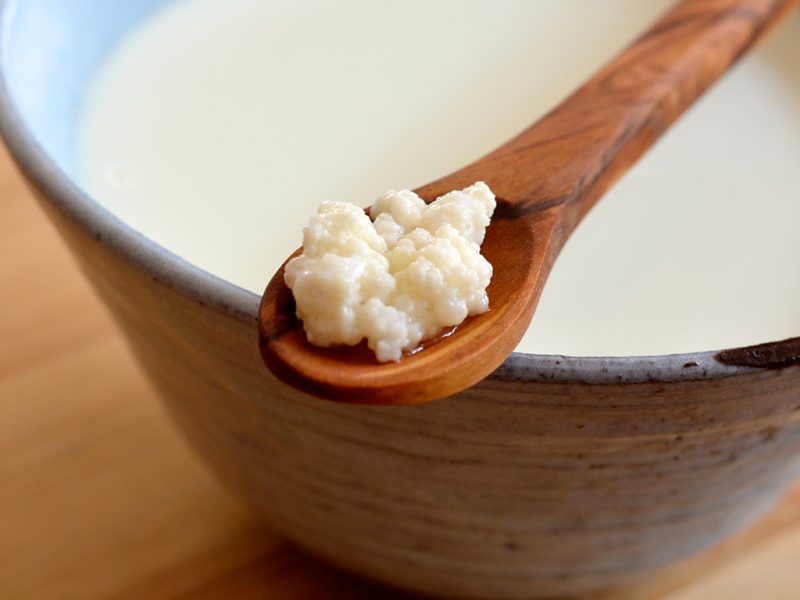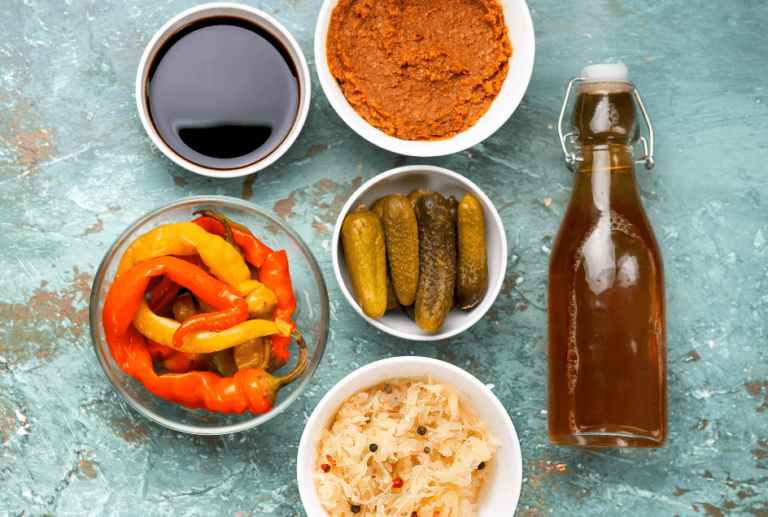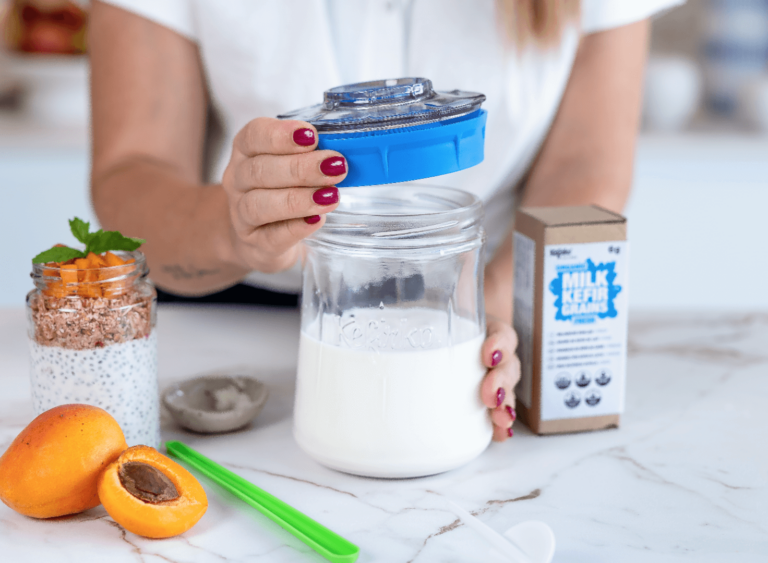Kefir – one of the most powerful probiotic foods

One of interesting facts about kefir is that it is not only probiotic foods (beneficial microorganisms), but also a prebiotic drink. Firstly, it contains beneficial microorganisms and induces their growth or activity. These microorganisms play an important role within overall gut balance. Also they are strengthening immune system and protect the whole organism from various critical conditions. Moreover, majority of bacteria living in our digestive system are important guardians of our immune system.
In fact, 75% of immune system is housed in digestive system. Hence that means numerous “good” bacteria and fungus live there and kill the “bad” microorganisms. Therefore, healthy gut easily gets rid of toxic waste, while it absorbs all needed minerals and vitamins.
However, the problem is when gut cannot get rid of toxic waste, or/and absorb vitamins and minerals. Often it has to do with unhealthy food choices, such as consuming a lot of carbohydrates. The negative consequences of such decisions may bring digestive issues and immune reactions, as well as they may evolve into chronic diseases. For that reason, our digestive system needs additional help in preserving its balance. So, this is why probiotics are super important.
Also kefir, being rich in Lactobacillus acidophilus and Bifidobacterium bifidum, makes quite powerful probiotic foods. Apart from probiotics it also contains high levels of vitamin B12, calcium, magnesium, vitamin K2, biotin, folate and enzymes. However, the nutrition content of kefir is never the same because it depends on the quality of the milk and the process of making.
Bacteria strains in Kefir
In conclusion, here are some facts and figures. Dosage of a 100 ml of kefir contains up to 100 miliards (mostly) bacteria and here are some:
LACTOBACILLUS
Lactobacillus acidophilus
Lb. brevis [Possibly now Lb. kefiri]
Lb. casei subsp. casei
Lb. casei subsp. rhamnosus
Lb. paracasei subsp. paracasei
Lb. fermentum
Lb. cellobiosus
Lb. delbrueckii subsp. bulgaricus
Lb. delbrueckii subsp. lactis
Lb. fructivorans
Lb. helveticus subsp. lactis
Lb. hilgardii
Lb. helveticus
Lb. kefiri
Lb. kefiranofaciens subsp. kefirgranum
Lb. kefiranofaciens subsp.kefiranofaciens
Lb. parakefiri
Lb. plantarum
STREPTOCOCCUS/LACTOCOCCUS
Streptococcus thermophilus
St. paracitrovorus ^
Lactococcus lactis subsp. lactis
Lc. lactis subsp. lactis biovar. diacetylactis
Lc. lactis subsp. cremoris
Enterococcus durans
Leuconostoc mesenteroides subsp. cremoris
Leuc. mesenteroides subsp. mesenteroides
Leuc. dextranicum ^
YEASTS
Dekkera anomala t/ Brettanomyces anomalus a
Kluyveromyces marxianus t/ Candida kefyr a#
Pichia fermentans t/ C. firmetaria a
Yarrowia lipolytica t/ C. lipolytica a
Debaryomyces hansenii t/ C. famata a#
Deb. [Schwanniomyces] occidentalis
Issatchenkia orientalis t/ C. krusei a
Galactomyces geotrichum t/ Geotrichum candidum a
C. friedrichii
C. rancens
C. tenuis
C. humilis
C. inconspicua
C. maris
Cryptococcus humicolus
Kluyveromyces lactis var. lactis #
Kluyv. bulgaricus
Kluyv. lodderae
Saccharomyces cerevisiae #
Sacc. subsp. torulopsis holmii
Sacc. pastorianus
Sacc. humaticus
Sacc. unisporus
Sacc. exiguus
Sacc. turicensis sp. nov
Torulaspora delbrueckii t
* Zygosaccharomyces rouxii
ACETOBACTERIUM
Acetobacter aceti
Acetobacter rasens





